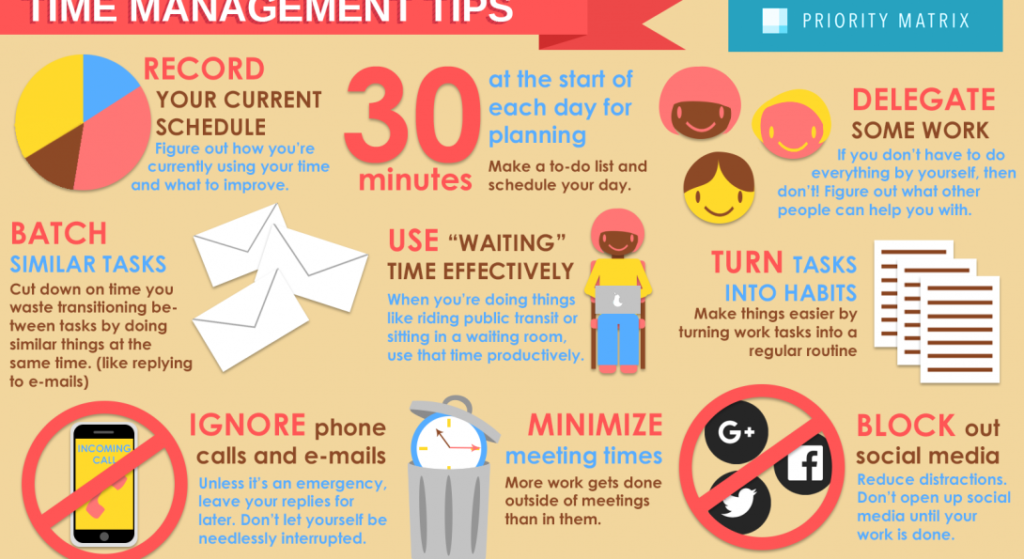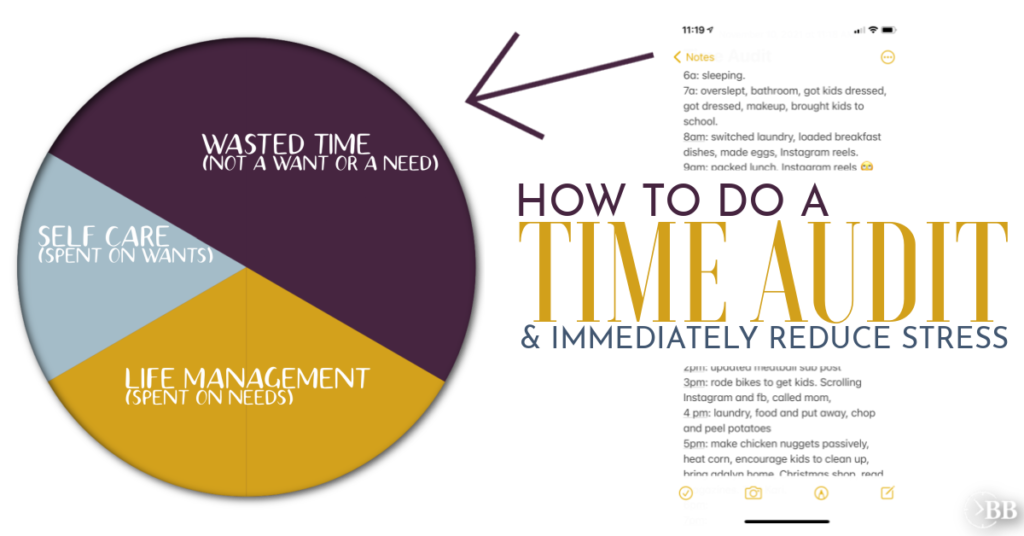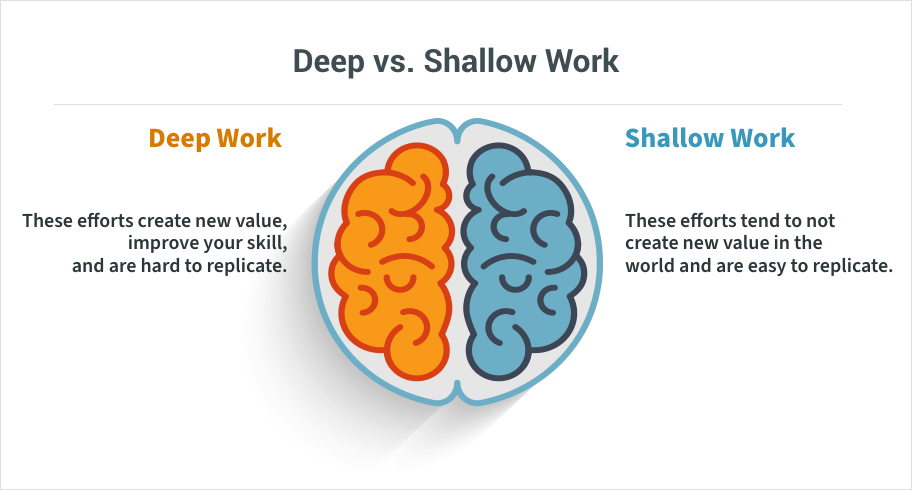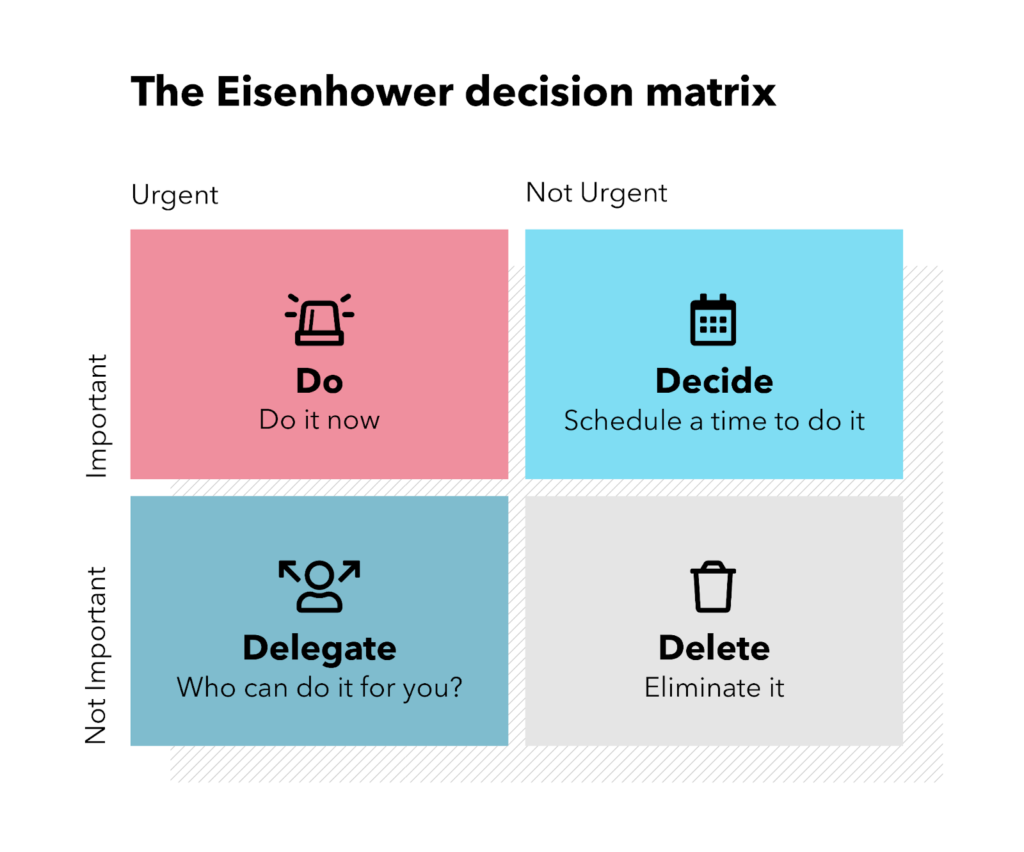
Table of Contents
- Why is Time Management Important?
- 5 Tips to Manage Your Time Better
- Key Takeaways
- Conclusion
- FAQs
If you’re like most people, you probably have too much to do and too little time to do it. You may often find yourself running behind, feeling guilty about not managing time with your family, missing appointments, and working late into the night. But fear not, this guide will help you manage your time and work effectively.
We get 24 hours in a day, but these days we have more distractions in our lives than ever before. Successful time management is progressively harder to achieve, from cell phones to social media to frequent emails. When you learn time management, you’ll find that you’re more productive and organized at work. This will make you happier and pave your way to success!
Why is Time Management Important?

You cannot manage your time if you don’t know where it’s going. Time management techniques help you to make the most of your time so that you can accomplish more. These techniques will reduce your stress and help you stay on top of your responsibilities when appropriately used.
By effectively managing your time, you can complete tasks in a shorter time. In turn, this gives you more free time to upskill while also reducing stress and enhancing your career. Time management can help you get more done in less time, so you have more time for the things that matter in life. And it’s not just about getting more done in a day – it’s about being more efficient and effective with your time so you can meet your goals and be better at your job.
Here are five expert tips to help you learn how to manage time.
5 Ways to Ace Time Management

1. Set achievable goals
Meeting deadlines is crucial, especially if you’re a freelancer or someone in a job where you’re required to hit a certain amount of daily or weekly goals. If you have a task that you know will take eight hours, don’t try to squeeze it into four! Always give yourself enough time to complete assignments.
One of the most important things to do when improving your time management skills is setting aside enough time for your tasks. The easiest way to do this is with a simple to-do list.
A simple list of what needs to be done for the day can help keep you on track and prevent procrastination. Start with the most important task first and work your way down until nothing else needs to be done. This will help keep you from getting distracted and straying from the original plan.
The key to time management success is knowing your deadlines and setting actionable reminders.
2. Conduct a time audit
Spend a day or two trackings how you spend your time. This can be as simple as writing down what you do every few hours or using a tool like Toggl to track your tasks throughout the day. At the end of each day, categorize each task by type (e.g., work, personal, errands, social activities) and by importance (e.g., urgent and important, not urgent but important, not important).

After the experiment is over, take some time to analyze the results. What were your biggest time stocks? Where did you have too much free time? How does this information correspond with your thoughts about how you spend your time? Are there any changes you can make to better use of your time?
It’s easy to get caught up in your thoughts and conversations throughout the day, wasting time and energy with things that aren’t moving you forward toward your most important goals.
A great way to stop this from happening is to take an audit of your time. In other words, write down exactly how you spend every hour of the day for a week or two. As you complete this time audit, It will become evident how much more of your time has been spent on useless thoughts, discussions, and activities.
You’ll also have a better idea of how long particular chores take. This activity can also help you figure out at what time of the day you’re most productive, so you’ll understand when to work on the projects that require the most concentration and creativity.
3. Practice deep work
Contrary to popular belief, multitasking is not a super talent that all successful people possess. In reality, multitasking is actually hurting your productivity.

Instead of multitasking, adopt the practice of deep work. Deep work is defined as “professional activities conducted in a level of distraction-free focus that stretches your cognitive faculties to their limit.” These efforts provide value to your life, increase your skills, and are difficult to duplicate.” Because of numerous distractions, we experience during the day, as Cal Newport argues in his book Deep Work, this type of work is becoming increasingly rare in today’s environment.
To get into the habit of deep work, you must be able to focus on one task at a time. Here are some pointers to get you started:
- Disable your email alerts. Instead of checking your email every 15 minutes, create 30-minute intervals to check it every couple of hours.
- Make sure you’re not distracted by non-work items like your smartphone, social media, or your favorite online store. You may even use a website like Freedom to block annoying websites for a set amount of time so that you can concentrate.
- Take a break whenever you feel the need.
- We’re conditioned to respond to immediate pleasure and pain just like a rat in a cage. If you’re working on something that requires long-term concentration, then this is the biggest thing holding you back from being productive. And that’s where deep work comes in!
4. Form a routine
If you work in an office, you may be familiar with the phrase “routine is key.” This term is commonly used to refer to people trying to navigate the world of balancing their personal life and career. While routine may sound mundane, it’s actually a very healthy way to live. In fact, there are many reasons why you should live by this mantra.
For starters, having a routine will help you stay motivated. If you know what your schedule will look like each week, it will be much easier for you to stay on track and complete tasks that need to be done. In addition, knowing what your schedule looks like will make it easier for you to plan family events and other activities that are important to you.
Another great thing about having a routine is that it will help you stay organized. Having a plan for how your days will go can help prevent you from being overwhelmed by all the different things that need to be done at work or home. It also helps keep your mind clear so that when an issue arises, you can focus on fixing it without becoming distracted by other things around you.
Finally, having a routine can help keep your stress levels down.
5. Prioritization is the key.
The most important task you can do today is make a to-do list. It organizes your thoughts and gives you clarity on what’s ahead. When you sit down at the beginning of the day, take five minutes to make a list of everything you need to accomplish—then prioritize it. Once you’ve done that, you’re ready to begin.
There are some tasks that you should never do. These include tasks you can delegate, tasks that are not essential to the end goal, or those that are just a waste of time. As you identify these tasks, put them on a separate list and highlight whether they need to be done by someone else or if they can just be eliminated entirely.
You can do so with the help of a famous mechanism written in Stephen Covey’s book, First Things First. This mechanism is the Eisenhower matrix that talks about prioritizing tasks and being productive.
Here’s a brief explanation of this matrix.

- Important and urgent: Complete these jobs as soon as possible because they have crucial deadlines.
- Important but not urgent: These topics are significant, but they do not require urgent action and should be considered part of a long-term development strategy. Make an effort to spend the majority of your time in this quadrant.
- Urgent but not important: These issues are important, but they do not require immediate action and should be included in a long-term development strategy. Take advantage of the opportunity to spend some time here.
- Not urgent and not important: These activities are of little or no benefit and should be avoided at all costs.
Key Takeaways
- Time management is the practice of planning, coordinating, and splitting time between various activities.
- Even when time is short and pressure is immense, effective time management helps you work smarter to do much more in less time.
- Failure to manage your time harms your effectiveness and can lead to stress.
- You can do so by prioritizing your tasks, setting a routine, doing a time-audit, concentrating on deep work, and setting actionable and achievable goals.
- Work smarter, not harder, by prioritizing tasks and focusing on how you spend your time rather than the number of hours you work.
- Time management is vital because they allow you to plan your work to achieve your objectives.

Conclusion
Making good use of your time is one of the keys to success. Effective time management helps attain more in less time, which results in even more spare time and allows you to learn and plan from things, reduces stress, and improves focus, all of which lead to greater job success.
Time management is not necessarily working harder, nor is it about doing more in less time. It’s about being smarter with your time so that you get the right things done. Effective use of your time can help to reduce stress and lead to feelings of control over your life.

FAQs
While time management may sound like you are managing time, it is actually all about managing yourself. You can’t manage time; you can only manage your life’s events with respect to time. Learn to use the time you have effectively.
1. Accomplishing more in less time.
2. Having more free time for personal interests and family.
3. Completing tasks on deadline, instead of feeling stressed by last-minute rushes.
4. A positive attitude because you are no longer frustrated by missed deadlines or added pressures.
5. Increased ability to relax and enjoy leisure activities without guilt or feeling that you “should” be working instead!
It’s easy to waste an hour or two on Facebook or email without even realizing it. The best way to avoid this is to eliminate any distractions as much as possible. Close all browser tabs except the one you’re working on and turn off notifications on your phone and computer.
Yes, you do! Breaks are significant in time management. Some people can sit down at a desk and work for four to five hours straight, but others find that productivity increases dramatically if you take regular breaks every hour or so.
1. Many people find it helpful to plan their day the night before. 2. Spend five or ten minutes at the end of your workday making a list of what you want to do tomorrow.
3. Prioritize them in order of importance.
4. Then, when you start to work the following morning, begin with the most important task first and move on down the list.
5. At the end of each day, take a few minutes to plan for tomorrow’s tasks.
Latest Blogs
8 Free AI Tools for Blog Writing That Every Marketing VP Should Know
AI in writing offers new possibilities for authors, coders, and students. Discover how AI enhances writing books, code, essays, and emails.
Learn how AI in digital marketing, especially AI article generators, enhances content creation, personalization, and SEO to boost audience engagement and ROI.
Get your hands on the latest news!
Similar Posts

Content
9 mins read
Content Marketing vs Advertising – Which One is More Effective?

Content
11 mins read
Interactive Content vs. Static Content: Which is More Effective?

Content
6 mins read